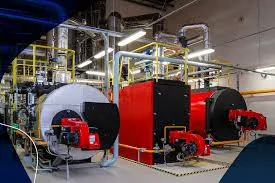
Dec . 25, 2024 21:15 Back to list
Understanding Biomass Heating Systems and Their Benefits for Sustainable Energy Usage
Understanding Biomass Heating Systems
A biomass heating system is an environmentally friendly and renewable energy solution that utilizes organic materials to generate heat. These systems harness biomass, which refers to any form of organic matter, including plant materials, agricultural waste, and even some animal waste. In recent years, biomass heating systems have gained traction as a sustainable alternative to traditional fossil fuels, contributing to the reduction of greenhouse gas emissions and promoting energy independence.
At the core of a biomass heating system is the combustion process, where biomass is burned to produce heat. This heat can be utilized for various purposes such as space heating in homes, heating water for domestic use, or even powering industrial processes. Common types of biomass used in these systems include wood pellets, wood chips, straw, and agricultural residues. The efficiency and effectiveness of a biomass heating system largely depend on the type of biomass fuel used and the technology employed to convert the biomass into heat.
Biomass heating systems can be categorized into different types based on their configuration. The two primary systems are central heating systems and standalone units. Central heating systems are designed to provide heat to multiple spaces from a single boiler or furnace, making them suitable for larger buildings or complexes. On the other hand, standalone units, such as pellet stoves, are ideal for heating individual rooms or smaller spaces. These systems are often more versatile and can be easily integrated into existing heating setups.
what is a biomass heating system

One of the significant advantages of biomass heating systems is their carbon neutrality. When biomass is burned for energy, it releases carbon dioxide that was previously absorbed by the plants during photosynthesis. Therefore, the net effect on atmospheric carbon levels is neutral, provided that the biomass is sourced sustainably. This contrasts sharply with fossil fuels, which release carbon that has been sequestered for millions of years, contributing to global warming.
Moreover, biomass heating systems can enhance local economies by creating jobs in biomass production, transportation, and processing. Utilizing locally sourced biomass can reduce dependence on imported energy and enhance energy security. Additionally, as technology advances, biomass heating systems are becoming more efficient, which translates to lower operating costs for consumers.
However, it is essential to note that the implementation of biomass heating systems must be managed sustainably. Overharvesting of biomass resources can lead to deforestation, loss of biodiversity, and soil degradation. To mitigate these risks, sustainable practices such as replanting trees, using agricultural byproducts, and managing supply chains responsibly must be prioritized.
In conclusion, biomass heating systems represent a promising shift towards a more sustainable energy future. By harnessing the power of organic materials, these systems not only provide a renewable energy source but also contribute to economic growth and environmental conservation. As more individuals and organizations recognize the benefits of biomass heating, it is likely that we will see a growing trend in the adoption of these systems. Coordinated efforts involving technology advancements, sustainable practices, and government policies will be critical for maximizing the potential of biomass heating systems and ensuring a cleaner, greener planet for future generations.
-
Oil Fired Hot Water Boilers Sale - High Efficiency & Affordable
NewsJul.31,2025
-
High-Efficiency Commercial Oil Fired Steam Boiler for Industry
NewsJul.30,2025
-
High-Efficiency Biomass Fired Thermal Oil Boiler Solutions
NewsJul.30,2025
-
High Efficiency Gas Fired Thermal Oil Boiler for Industrial Heating
NewsJul.29,2025
-
High-Efficiency Gas Fired Hot Water Boiler for Sale – Reliable & Affordable
NewsJul.29,2025
-
High Efficiency Biomass Fired Hot Water Boiler for Industrial and Commercial Use
NewsJul.29,2025
Related PRODUCTS






















